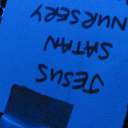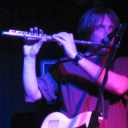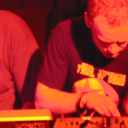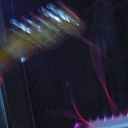The Null Device
2002/10/18
Some sensible news from the fashion front: conspicuous consumption is out, and thrift is in. Spending less is now not so much a sign of shameful poverty or low social status as one of defiance against the corporate branded lifestyle.
The word 'luxury' has become so overused it has become completely meaningless. For the intelligent consumer it simply means overpriced and overhyped. The new trend towards thrifty shopping is as much about being ahead of the curve as it is about saving money. The cheaper holiday destination might be the one the rest of the planet hasn't quite discovered yet; that old 70s leather handbag you spotted at Oxfam might be the one that a researcher for a big fashion house might snap up if you don't.
Of course, then the brands will start making tatty-looking thrift-chic items, objects fresh from the Indonesian sweatshop that look like they've been pre-worn since the 1970s, and selling them for obscene prices, and the cycle will repeat itself.
An anti-milk campaign outside a Scottish school by lunatic-fringe animal-rights group PETA (they're the mob who want to ban the domestication of animals, full-stop) turned sour when the two PETA protestors, one in a cow suit, were attacked by 100 schoolchildren. Carrying banners reading "milk for the masses", the children surrounded the two PETA activists and drenched them in milk before police could intervene. Could People for Eating Tasty Animals be involved?
Research in neuroscience suggests that conscious free will may be an illusion, with decisions being made in the brain before they reach the conscious mind.
What Libet did was to measure electrical changes in people's brains as they flicked their wrists. And what he found was that a subject's ''readiness potential'' - the brain signal that precedes voluntary actions - showed up about one-third of a second before the subject felt the conscious urge to act. The result was so surprising that it still had the power to elicit an exclamation point from him in a 1999 paper: ''The initiation of the freely voluntary act appears to begin in the brain unconsciously, well before the person consciously knows he wants to act!''
Then the experimenters would use magnetic stimulation in certain parts of the brain just at the moment when the subject was prompted to make the choice. They found that the magnets, which influence electrical activity in the brain, had an enormous effect: On average, subjects whose brains were stimulated on their right-hand side started choosing their left hands 80 percent of the time. And, in the spookiest aspect of the experiment, the subjects still felt as if they were choosing freely.
Which makes sense; if cognition is a physical process, then so would be decision-making. And it could be that the conscious mind is a very small part of the processes of the brain.
I've suspected for a while that our conscious minds don't so much do the thinking as weave together a coherent internal narrative from the myriad of subconscious processes in our heads, providing a serial stream of consciousness essential to having the sense of self and the ability to introspection. So it could be that we don't consciously make any decisions, only rationalise what the physical processes in our brains do.
Today's video clip is a special treat: 30 seconds from the Morrissey gig on Tuesday. (AVI MJPEG file, 4Mb.) The sound is awful (due to lack of level control in my camera), but you can sort of make out that he's singing Everyday Is Like Sunday. This clip may not stay around for very long though.
An American tourist's account of North Korea, that bizarre bastion of fetishistic neo-Stalinism and insular paranoia.
The spectacle was something I'll never forget, though perhaps not for the reasons Mr. Huk and his countrymen intended. The show was so precise as to be robotic. No one outside the group, everyone buried within it. All done with a flair and focus that was chilling to behold. The model of mass unity that was being held up as proof of greatness and independence smacked of mindlessness. Of course everyone in the performance was human, with their own hopes, dreams and desires. This though was something to be eliminated, not tolerated or encouraged. These were things that still had to be rooted out in an effort to build the utopian, Juche-centered society. The zeal in Mr. Huk's voice spoke not of a country, but of a cult.
(via Reenhead)
Neurologists have discovered the cause of teen angst. Like many psychological phenomena, adolescent awkwardness and the resulting anxiety comes from physical changes in the brain; in particular, the parts of the brain that deal with emotions and social situations are diminished between the ages of 11 and 18, and the desire to listen to deliberately bad music probably comes from that.
Now perhaps someone will invent a pill for counteracting teen angst, and thus send Hot Topic and Interscope Records into bankruptcy.
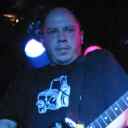 I just came back from seeing Mogwai, and my ears are still ringing.
I just came back from seeing Mogwai, and my ears are still ringing.
They played at the Prince of Wales in St Kilda; the last time I set foot at this venue was to see FourPlay, and back then the PA was appalling. Though this time, the problem had apparently been fixed; either that, or with all the amps Mogwai had on stage, the Prince's PA was irrelevant. Either could equally be the case.
First up were a Sydney band named Decoder Ring. Somewhat Tortoise-ish, or perhaps like Prop with guitars instead of chromatic percussion. They were OK; quite agreeable in places, though they didn't excite me all that much.
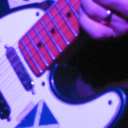 Then Mogwai came on, picked up their instruments and made a lot of noise. Two basses, 3 guitars, a Rhodes piano, a flute, a sampler, a Titanium PowerBook and a lot of amplifiers, pedals and miscellaneous kit. They started with You Don't Know Jesus, then went into Mogwai Fear Satan, with the quiet flute bit suddenly going into a tidal wave of distorted guitar. They also played Helicon 1, making some quite lovely shoegazer textures, and then went into 2 Rights Make 1 Wrong, with vocoded vocals and a processed drum loop of some sort (though no banjo).
For the encore they did Secret Pint (which I thought was one of the less interesting parts of Rock Action, though they fleshed it out a bit with the Rhodes), and then into an intense, headbanging version of the Jewish hymn My Father My King, rocking for a good 10-20 minutes and culminating with the bald guy tearing most of the strings out of his guitar, and leaving it to feedback, turning his attention to cranking all the amps up to 11 and doing things with pedals, treating the audience to several minutes of fucked-up noise.
It goes without saying that they totally rocked.
Then Mogwai came on, picked up their instruments and made a lot of noise. Two basses, 3 guitars, a Rhodes piano, a flute, a sampler, a Titanium PowerBook and a lot of amplifiers, pedals and miscellaneous kit. They started with You Don't Know Jesus, then went into Mogwai Fear Satan, with the quiet flute bit suddenly going into a tidal wave of distorted guitar. They also played Helicon 1, making some quite lovely shoegazer textures, and then went into 2 Rights Make 1 Wrong, with vocoded vocals and a processed drum loop of some sort (though no banjo).
For the encore they did Secret Pint (which I thought was one of the less interesting parts of Rock Action, though they fleshed it out a bit with the Rhodes), and then into an intense, headbanging version of the Jewish hymn My Father My King, rocking for a good 10-20 minutes and culminating with the bald guy tearing most of the strings out of his guitar, and leaving it to feedback, turning his attention to cranking all the amps up to 11 and doing things with pedals, treating the audience to several minutes of fucked-up noise.
It goes without saying that they totally rocked.
